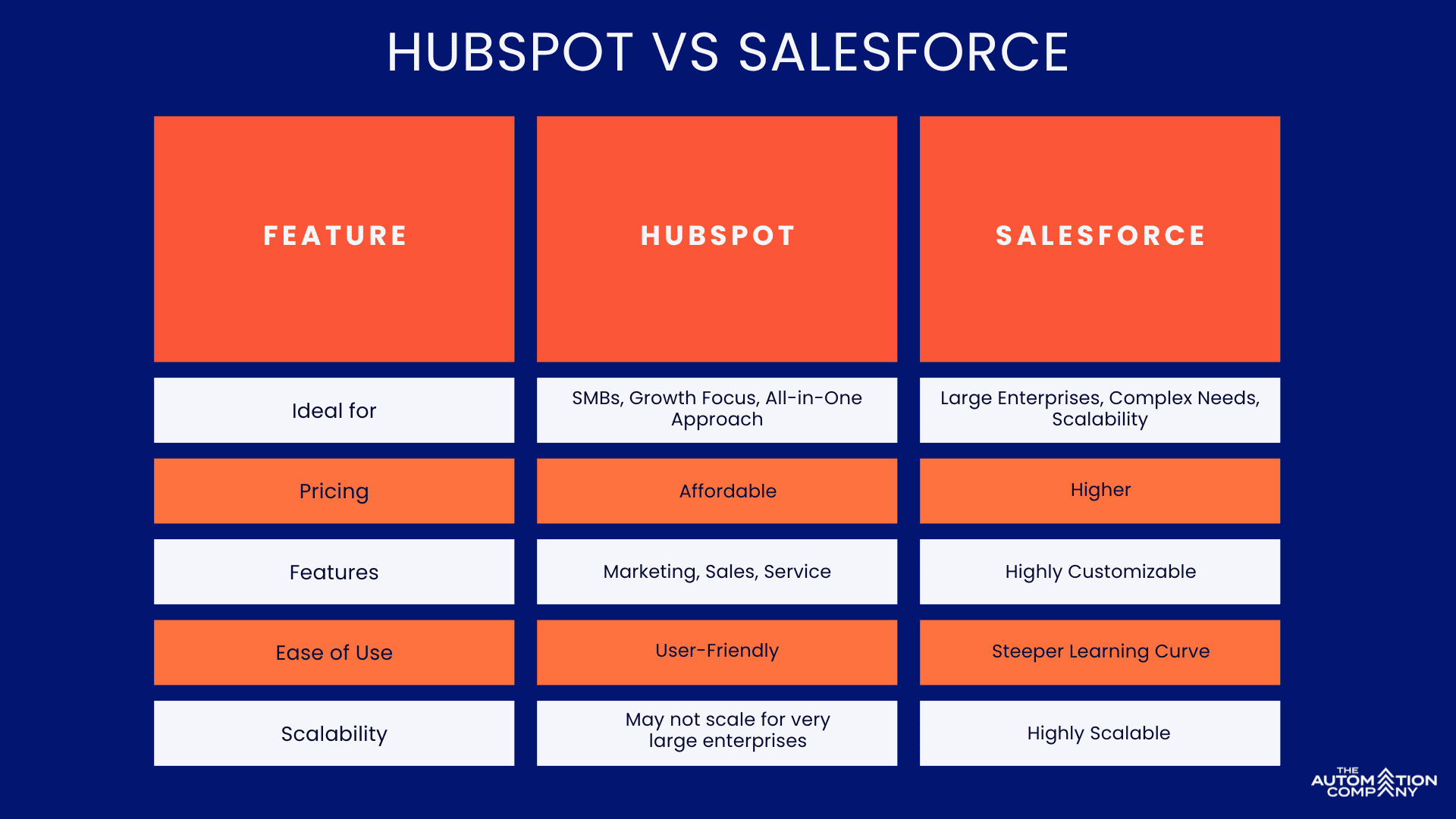Selecting the ideal marketing automation platform is a critical choice for businesses of all sizes. While both HubSpot and Salesforce are industry leaders, they cater to distinct needs. Understanding the significant differences between these two platforms empowers you to make an informed decision that fuels your growth.
HubSpot and Salesforce excel in different areas:
Here’s a breakdown of when each platform reigns supreme:
HubSpot reigns supreme for:
Salesforce takes the crown for:

Pros:
Cons:
Pros:
Cons:
While user-friendliness is a significant consideration, it’s not the only factor. Businesses with complex needs may prioritize deep customization over ease of use. However, for many organizations, particularly SMBs, prioritizing a user-friendly platform like HubSpot can yield substantial benefits:
Ultimately, the best platform hinges on your specific business needs. Analyzing your team’s technical expertise, budget constraints, and desired level of customization will guide you towards the ideal solution. For many businesses seeking a user-friendly platform that empowers growth, HubSpot offers a compelling solution. However, for large enterprises with intricate workflows and extensive data needs, Salesforce’s robust functionalities reign supreme.